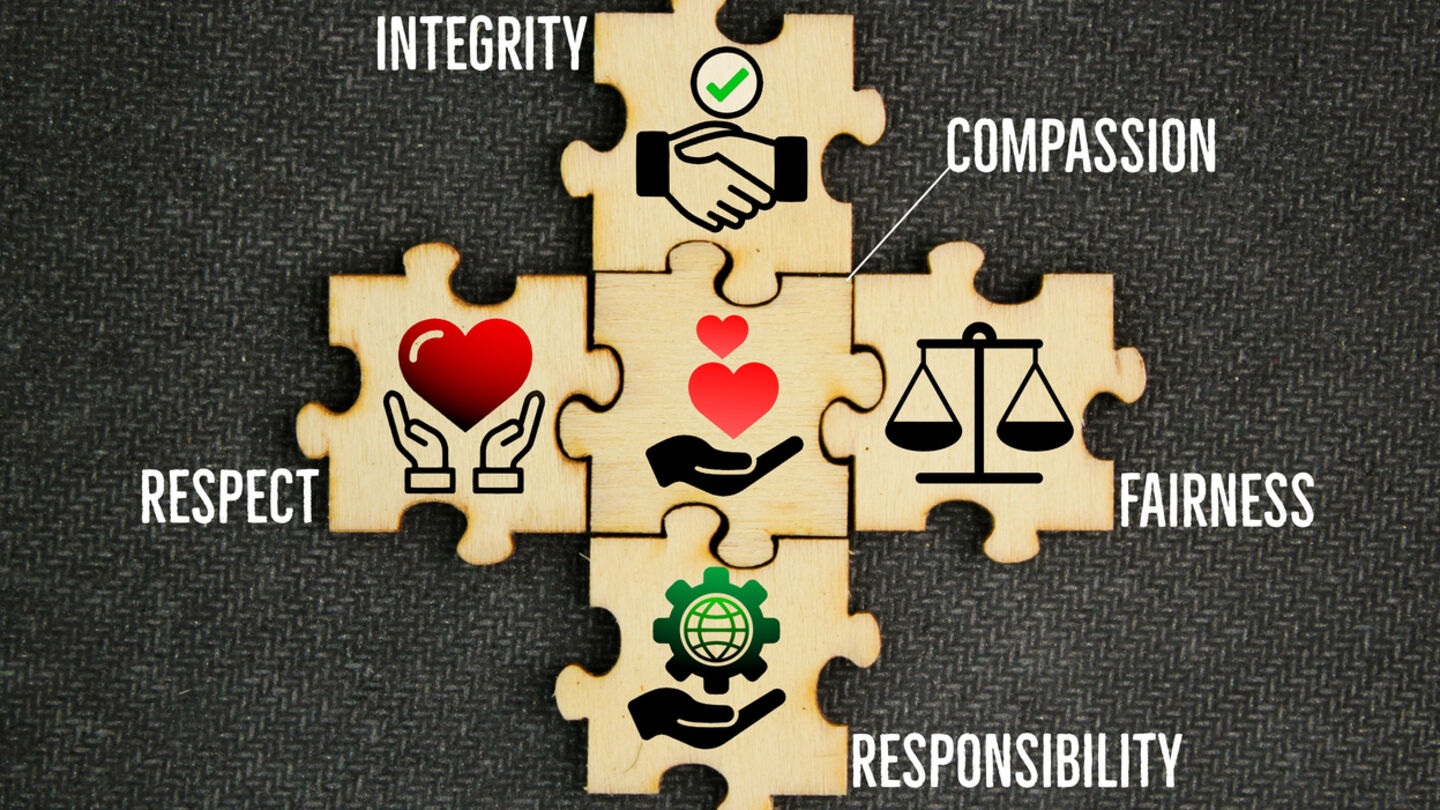
Responsible research: from buzzwords to real change
The TU/e event Responsible Research Conversations brought together researchers, support staff, and policymakers on Thursday morning to explore what “responsible research” really means. From social safety to sustainability and inclusivity, the event highlighted not only how many initiatives already exist, but also how much more is needed to enable structural change.
With Responsible Research Conversations, the organizers aim to raise awareness about responsible research. But what does “responsible” actually mean in this context? “It’s no coincidence that it’s included in TU/e’s new core values,” says Andrea Kis, the event’s initiator. “It captures what we want to see in research cultures. Not only in how we conduct research responsibly, but also in how we interact with one another as colleagues. It’s a broad umbrella term that includes themes such as sustainability, scientific integrity, inclusion, social safety, recognition and rewards, and open science. It brings all these aspects together.”
Kis earned her PhD this year with a dissertation on the sustainability of science and academic careers. She explored how the system could become less dependent on the “publish or perish” model and how researchers could make an impact in healthier ways. After her PhD, she deliberately chose to move from academia into the professional domain. At the Department of HRM, she now uses her expertise to drive real change in the academic climate. One of her current projects is building a Responsible Research community at TU/e, with Responsible Research Conversations as its starting point.
Inextricably linked
“We’re gradually involving more and more people,” Kis explains. “Our first goal is to bridge the gap between different groups within the organization. What we often see is that academic staff and professional staff (also known as support staff, ed.) have little contact, even though they’re working on similar themes. Think of HRM staff developing policies around careers or well-being. It turns out to be difficult to get feedback from academic staff on those issues, or even to start meaningful conversations. Yet this is exactly what we need in order to build a better academic environment together.”
“All the topics within Responsible Research are inextricably linked,” she continues. “You can’t have scientific integrity without social safety – and vice versa.” To truly change TU/e’s academic culture, Kis believes it’s necessary to bring together the different actors working on these themes so they can collaborate: from META/e to the Sustainability Office, and from the Social Safety & Integrity Desk to the Open Science Community. “There’s now a Teams channel for the community. With this event, we wanted to bring those groups closer together and increase their visibility.”
Safety and good leadership
The event, held Thursday morning in the DIFFER building, started with a panel discussion on what Responsible Research entails and how it can be achieved from three perspectives: Rector Magnificus Silvia Lenaerts from the Executive Board, assistant professor of Philosophy of Science Vlasta Sikimić from academia, and HRM policy advisor Julma Braat from the professional side. According to the rector, Responsible Research means taking societal expectations and moral norms into account from the very beginning.
Sikimić emphasized that trust in science is under pressure, as seen during the vaccination debate in the COVID-19 pandemic. She pointed out that people sometimes feel excluded, which is why broad diversity and representation of different groups are essential.
HRM policy advisor Julma Braat highlighted the importance of new policies to make academic careers more diverse, with education carrying as much weight as research. “The contributions of professional staff also need to be recognized, because they are essential to good research,” she said. Rector Silvia Lenaerts agreed. “We need people from different backgrounds, and we must value everyone’s contribution. The university should be a diverse community in which we complement rather than compete with one another.”
“But what’s the key to moving forward and making real improvements?” someone from the audience asked. “It starts with creating an environment where people feel safe and supported,” Lenaerts responded. “Only from that sense of safety and trust can people contribute.”
“Good leadership is also crucial,” Braat added. “Every leader has to be open to all those different perspectives. That’s not always easy, but it’s precisely that space for diversity – and even occasional friction – that can lead to better results.”
META/e
After the panel discussion, participants moved in small groups past six different stands. At each stand, representatives explained their initiative and the themes they work on within Responsible Research.
One of the stops was the Eindhoven Meta-Science Center, a relatively unknown but important group at TU/e. “At META/e, we use science to improve science,” explained member Sajedeh Rasti. “At all levels – from individual researchers to the scientific community as a whole. Key themes include: how do we make research reproducible? What’s the best way to allocate research funding? And how can we increase inclusivity in terms of gender, geography, and disciplines?”
At the other stands, participants were introduced to the Open Science Community, the Integrity & Social Safety Desk, the Data Steward Team, the Sustainability Office, and the HRM policy team’s presentation on careers. They also had the chance to ask questions or discuss some of the themes.
What is sustainability?
At the stand of the Sustainability Office, which focuses on integrating sustainability into all domains and activities within the university, participants were invited to reflect on a statement: “Academic freedom should have limits when research has unsustainable outcomes.” By throwing a ball into one of two glass jars, they could indicate whether they agreed or disagreed with the statement.
“First, you need to define exactly what you mean by sustainability,” one participant remarked. “Do you mean only ecological sustainability, or also social sustainability? And when is something considered unsustainable?”
“Our role isn’t normative; we see ourselves as conversation starters. These are important questions we all need to talk about,” came the reply from the stand.
What stood out most was how many good initiatives already exist, yet how few people outside these groups are aware of them. “How interesting, I had no idea!” was a common reaction. To raise awareness of these initiatives and further connect the different “islands,” the morning program continued with workshops on themes ranging from social safety to sustainability. One example was a “Full circle” workshop, where participants used a board game to practice having conversations that leave space for different opinions.
Funding
The event was entirely the result of Kis’ own initiative. Initially, there was hardly any funding, apart from a small amount that Kis and Braat were able to allocate from an existing grant. Later, the Open Science Community contributed part of its own budget. “It was very much a bottom-up process,” Kis says. “It’s important for the university to establish something structural that really works and gets the necessary funding,” she adds. She emphasized that themes like social safety, integrity, and sustainability often pop up everywhere as separate buzzwords, but real change requires time, resources, and collaboration.
“People have the best intentions, but they’re already overwhelmed with daily tasks. Without structural support and funding, good ideas won’t take off.” Still, Kis is hopeful: with more than fifty participants, she considers the event a success. “It’s a good start,” she says. She hopes the Executive Board will see how many people are willing to commit to Responsible Research, and that this could lead to real, positive change – provided the right support and resources are put in place.

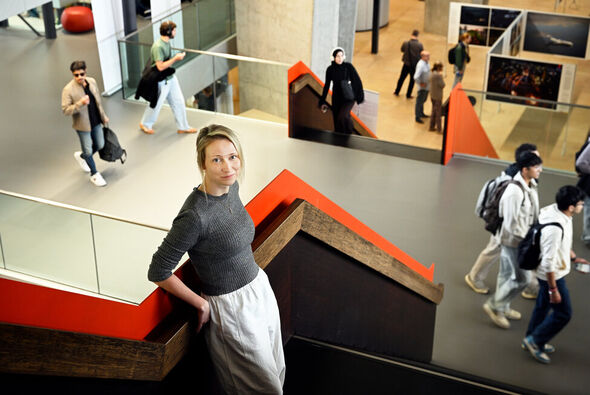
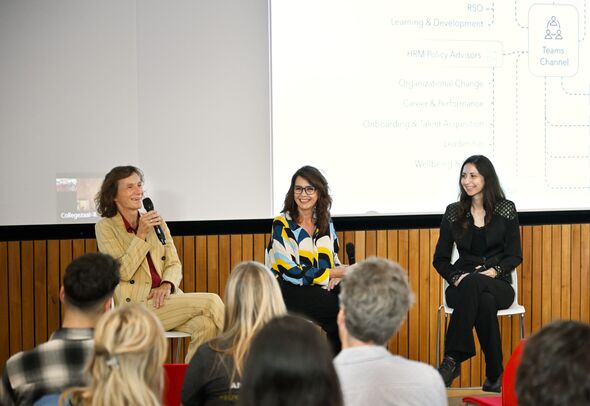
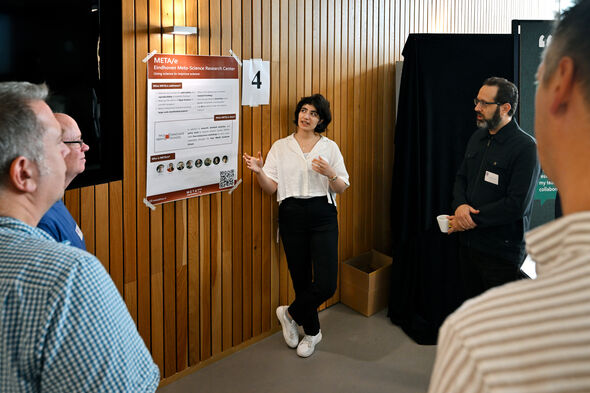
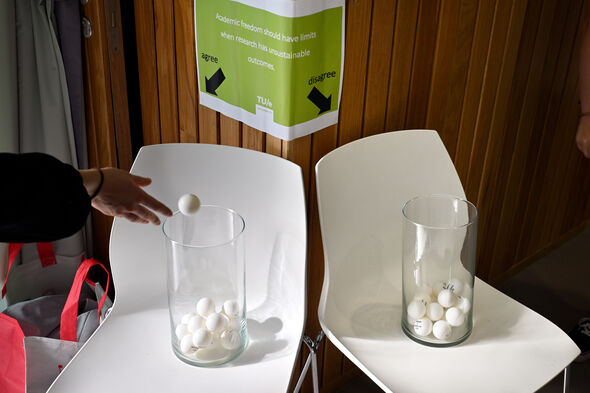
Discussion